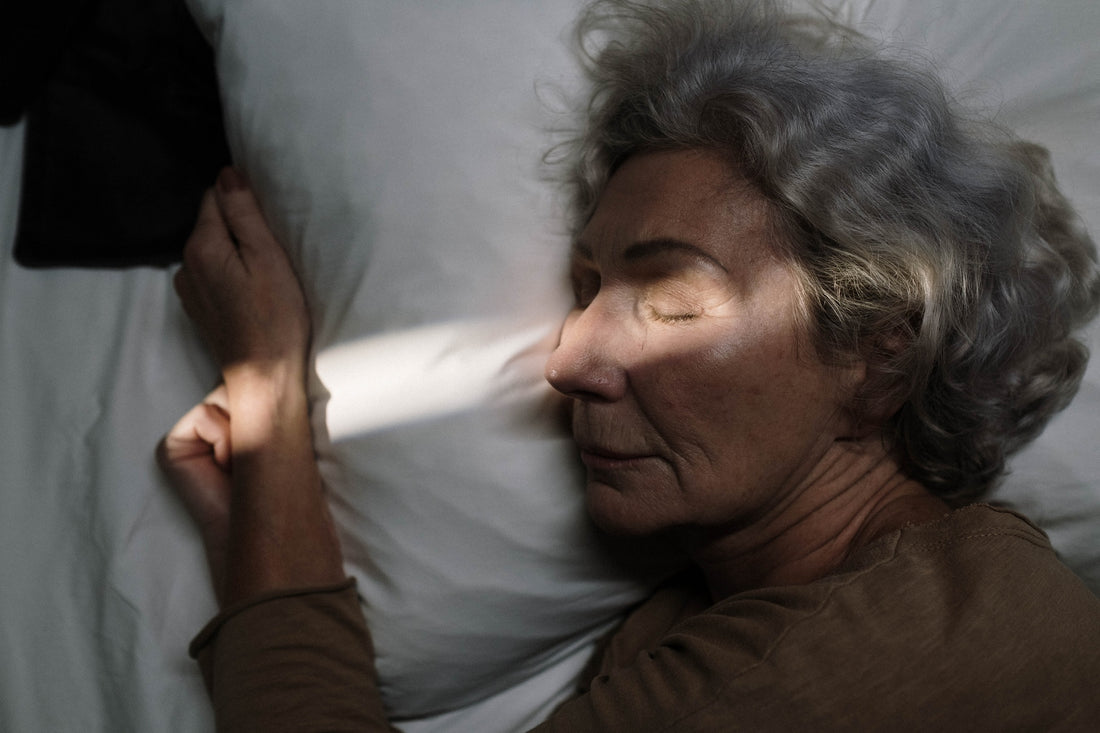The coffee business in America is booming, with sales topping over $46 billion last year alone. Many sleepy Americans are fueled by this jolt of caffeine to start their day and to keep them going throughout—often because of a poor night’s sleep.
So, grab a cup of coffee, and let’s discuss sleep quality.
Most experts advise a daily sleep recommendation of seven to nine hours for optimal health. But new research aims to identify not only the total number of hours of sleep that one needs but also the amount of each stage of sleep throughout the night that is needed. To get a quality and restorative rest, smoothly progressing through the sleep stages multiple times throughout the night is critical.
Four different stages make up a single sleep cycle: three stages are non-rapid eye movement sleep (NREM) and one stage of rapid eye movement (REM). During the REM stage, our eyes dart and move rapidly in different directions. Many people associate dreams with REM sleep because this is the stage where most dreams occur.
Over the course of the night, we cycle through the four stages of sleep multiple times—the first three non-REM stages, followed by short REM sleep. Then the cycle begins over. Each stage lasts around 10-15 minutes, and a complete cycle takes about 90 to 110 minutes. Light sleep happens in the first two stages, and deep sleep occurs in the latter. Most adults complete 4 to 5 sleep cycles during an entire night of rest. Each stage plays a critical role in health and recovery to meet one's overall sleep needs.
Is Light Sleep Healthy?
For optimal physical and mental health, every stage of sleep is vital. While much emphasis is placed on deep sleep, we should not overlook the importance of light sleep.
Because we cycle through our stages of sleep each night, light sleep makes up about half of a full night of sleep. Light sleep is the default stage because it is impossible to avoid if one is asleep at all. It is the stage of the sleep cycle where the body prepares for deep sleep.
During light sleep, heart and breathing rates are lower, but the body is still sensitive to noise, touch, temperature, and movement. During this shallow sleep, one is aware of their surroundings and can be woken easily. If a person wakes up in this stage, they may feel like they were not even asleep. But after a whole night of sleep, waking during light sleep is ideal because a person will feel refreshed, rested, and ready to start the day.
Over the course of a person’s life, sleep patterns will evolve. As we get older, we spend more time in the light sleep stages. As we age restlessness and changes in sleep patterns may contribute to finding it harder to fall asleep, waking up more often during the night, and waking up earlier in the morning. Older adults often complain that the transition between sleep and wakefulness is abrupt, and they feel deprived of sleep even if the total number of sleep hours has not changed. For healthy aging, it is important to get a good night’s sleep and to reach stages of deep sleep throughout the night. Small steps can help, like avoiding caffeine, exercising regularly, keeping the bedroom temperature cool, creating a nightly bedtime routine, and finding a comfortable, supportive bed.
How Much Deep Sleep Should You Get?
For an average adult, experts recommend that a restful night’s sleep include 50% light non-REM sleep, approximately 20-25% deep non-REM sleep, and the remaining 20-25% full REM sleep.
Also referred to as slow wave sleep, deep sleep is vital to perform essential functions like organ detoxification, wound healing, tissue repair, cell regeneration, boosting the immune system, and building energy for the next day. REM deeper sleep is particularly beneficial for learning and memory. It’s when the brain processes the information gathered throughout the day and stores it in long-term memory.
During deep sleep, one will experience physiological changes, including:
- Slower heart rate
- Slower breathing rate
- Muscles relax
- Brain waves slow down
- Brain activity reduces
- Less response to outside stimuli
- Body temperature falls
- Active dreaming occurs
Deep sleep is the hardest sleep to wake up from and when our bodies are most relaxed, which is why we can sleep through a thunderstorm or fireworks. If one’s sleep is disrupted during deep sleep, many of us wake up disoriented, groggy, or grumpy, and it will take a few minutes to shake that tired feeling.
Many people toss and turn all night and may suffer from chronic sleep deprivation. According to the Academy of Sleep Medicine, chronic sleep deprivation, also known as insufficient sleep syndrome, is curtailed sleep that persists for three months or longer. It is associated with some of the most serious potential health problems, from heart disease, stroke, diabetes, and high blood pressure, to depression, obesity, weight gain, and weakened immunity. Without adequate sleep, some find it difficult to process new information, suffer from poor judgment, trouble concentrating, and are prone to accidents.
Some of the reasons for sleep deprivation include:
-
Sleep Disorders: insomnia, narcolepsy, restless leg syndrome, sleep apnea
-
Mental or Physical Health Problems: depression, schizophrenia, chronic pain, cancer, stroke, Alzheimer’s disease
-
Change in Schedule or Lifestyle: A new baby, stress, work schedule
-
Aging: Seniors commonly experience disruptive sleep
One of the telling signs of sleep deprivation is feeling drowsy during waking hours. Even if a task might be tedious, one should be able to stay alert if they are not sleep-deprived. Another sign that a person is getting little to no sleep is falling asleep minutes after hitting the pillow. Also, people with sleep deprivation may take “microsleeps” where they briefly nap during the day, which they may not even be aware that they are doing. Don’t let sleep issues linger. If you are waking up tired on a regular basis, it’s a good idea to speak with your healthcare provider.
Any effort to ensure you get a good night’s sleep is a valuable investment in your overall wellbeing. At Dawn House, our high-low adjustable bed and holistic sleep system gives older adults, and people with changing needs, a great night’s sleep in a luxury-level bed with health monitoring sensors and innovative safety features for restful and restorative sleep.
Featured image credit: RonLach-pexels


